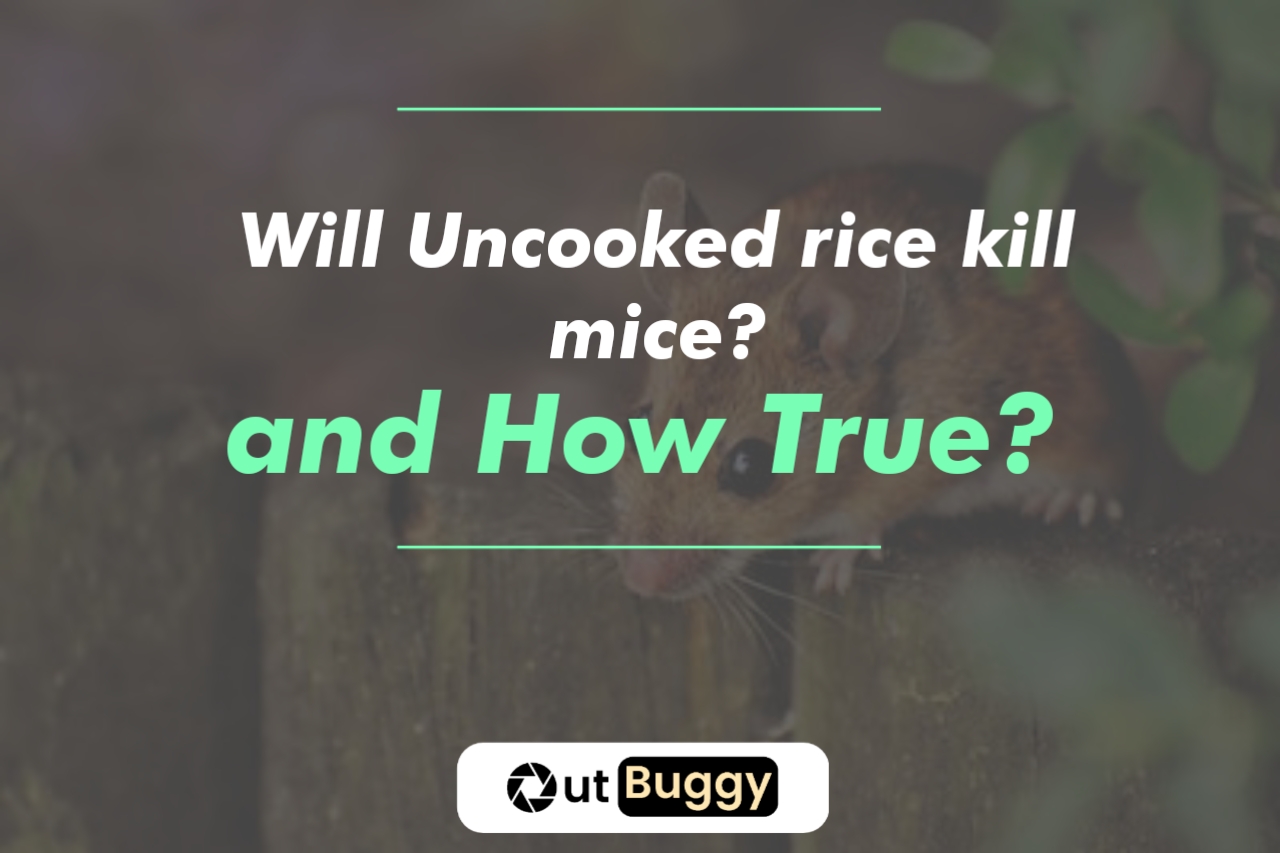Throughout history, mankind has come up with numerous methods to control pests, with each technique showcasing its own level of effectiveness and ethicality.
One of the longstanding talks, however, revolves around uncooked rice and its possible lethal in mice. In this article, we’d be taking a look how true this is.
Contents
Will Uncooked Rice Kill Mice?
To be honest, mice are not something we ever want to come across at home, and finding a humane way to evict them can be a real challenge.
Sure, you could go for the traditional methods like traps and poisons, but those can be dangerous and inhumane. Or maybe not something you’d want to try.
So, what about uncooked rice? Can this common kitchen staple be the answer to your to get rid of mice?
According to the rumor mill, uncooked rice can be deadly to mice.
Just like the case for peanut butter with Baking Soda, the theory is that the rice will swell up in the mouse’s stomach, leading to blockages and ultimately death.
But is there any truth to this claim, or is it just another old wives’ tale?
To understand the science behind it, we need to take a closer look at how mice digest their food.
Like most mammals, mice have an enzyme called amylase in their saliva that helps break down carbohydrates, including the starches found in rice.
However, they lack a stomach enzyme called alpha-chymotrypsin, which is necessary for digesting proteins.
This means that if a mouse were to consume a large amount of uncooked rice, the rice could swell up in its stomach and cause blockages that could be fatal.
But here’s the thing – it’s highly unlikely that a mouse would actually eat enough uncooked rice to cause such a blockage.
After all, mice are opportunistic feeders and tend to prefer high-protein foods like meat and cheese over starchy grains like rice.
So, even if you put out a bowl of uncooked rice, it’s unlikely to be the first thing mice would eat.
And even if a mouse did eat a significant amount of uncooked rice, it’s not necessarily a guaranteed death sentence.
While the rice could cause blockages, small animals have been known to pass foreign objects like coins and buttons through their digestive systems without any issues.
So, like killing mice with salt, while it’s not a humane or effective solution to a mouse problem, uncooked rice isn’t necessarily the deadly weapon it’s rumored to be.
Are there any other food items that actually kill mice?
Now, we all love a good kitchen hack, but unfortunately, using food to kill mice isn’t one of them.
So, sorry to burst your bubble, but there are no magical foods that can wipe out a colony of mice with one bite. However, certain foods can be used as bait to lure them — which is quite effective.
Peanut butter is a popular choice, and let’s be honest, who can blame the mice for being drawn to them? I mean, everyone loves them.
Related: How to Use Peanut Butter and Baking Soda to Kill Mice
Just remember, mice are smarter than we give them credit for, and they quickly learn to avoid danger.
So, if you’re using bait to trap them, mix it up and try different foods or locations for your traps.
But let’s be real, not everyone wants to catch and release mice all day.
Hence, some people usually hop into options of repellants, such as mothballs or dryer sheets. It might sound a bit odd, but the strong scent can be a real turn-off.
Note that these are not used to kill mice, but to repel them.
And if you’re looking for a more humane approach, try using a humane trap.

These traps allow you to catch the mouse without causing harm, and then release it far away from your home. It’s a win-win situation – the mouse gets to live, and you get to sleep soundly knowing you’re not harboring a rodent in your home.
Conclusion
So, there you have it, folks! We’ve debunked the myth about uncooked rice killing mice, but we’ve also learned some pretty neat tips and tricks to deal with these critters. From using peanut butter and cheese as bait to trying out some unconventional items like mothballs and dryer sheets, there are plenty of ways to get rid of mice and keep them away.



